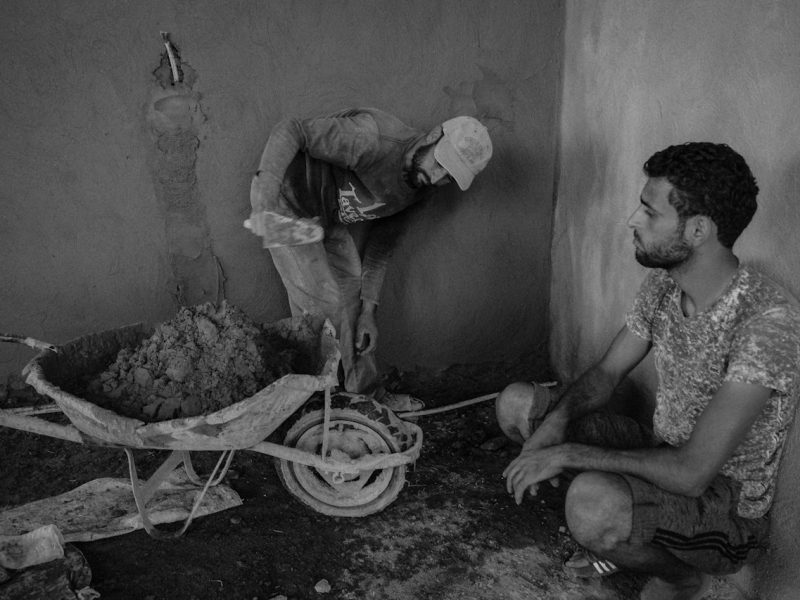AN ABSENCE OF HUMAN DIGNITY ON THE BORDERS
37. Certain populist political regimes, as well as certain liberal economic
approaches, maintain that an influx of migrants is to be prevented at all costs.
Arguments are also made for the propriety of limiting aid to poor countries, so
that they can hit rock bottom and find themselves forced to take austerity
measures. One fails to realize that behind such statements, abstract and hard to
support, great numbers of lives are at stake. Many migrants have fled from war,
persecution and natural catastrophes. Others, rightly, “are seeking opportunities
for themselves and their families. They dream of a better future and they want
to create the conditions for achieving it” (Post-Synodal Apostolic Exhortation
Christus Vivit, 25 March 2019, 91).
38. Sadly, some “are attracted by Western culture, sometimes with unrealistic
expectations that expose them to grave disappointments. Unscrupulous
traffickers, frequently linked to drug cartels or arms cartels, exploit the
weakness of migrants, who too often experience violence, trafficking,
psychological and physical abuse and untold sufferings on their journey”
(Post-Synodal Apostolic Exhortation Christus Vivit, 25 March 2019, 92). Those
who emigrate “experience separation from their place of origin, and often a
cultural and religious uprooting as well. Fragmentation is also felt by the
communities they leave behind, which lose their most vigorous and enterprising
elements, and by families, especially when one or both of the parents migrates,
leaving the children in the country of origin” (Post-Synodal Apostolic Exhortation
Christus Vivit, 25 March 2019, 93). For this reason, “there is also a need to
reaffirm the right not to emigrate, that is, to remain in one’s homeland”
(BENEDICT XVI, Message for the 2013 World Day of Migrants and Refugees, 12
October 2012).
39. Then too, “in some host countries, migration causes fear and alarm, often
fomented and exploited for political purposes. This can lead to a xenophobic
mentality, as people close in on themselves, and it needs to be addressed
decisively” (Post-Synodal Apostolic Exhortation Christus Vivit, 25 March 2019,
92). Migrants are not seen as entitled like others to participate in the life of
society, and it is forgotten that they possess the same intrinsic dignity as any
person. Hence they ought to be “agents in their own redemption” (Message for
the 2020 World Day of Migrants and Refugees, 13 May 2020). No one will ever
openly deny that they are human beings, yet in practice, by our decisions and
the way we treat them, we can show that we consider them less worthy, less
important, less human. For Christians, this way of thinking and acting is
unacceptable, since it sets certain political preferences above deep convictions of
our faith: the inalienable dignity of each human person regardless of origin, race
or religion, and the supreme law of fraternal love.
40. “Migrations, more than ever before, will play a pivotal role in the future of
our world” (Address to the Diplomatic Corps accredited to the Holy See, 11
January 2016). At present, however, migration is affected by the “loss of that
sense of responsibility for our brothers and sisters on which every civil society is
based” (Address to the Diplomatic Corps accredited to the Holy See, 11 January
2016). Europe, for example, seriously risks taking this path. Nonetheless, “aided
by its great cultural and religious heritage, it has the means to defend the
centrality of the human person and to find the right balance between its twofold
moral responsibility to protect the rights of its citizens and to assure assistance
and acceptance to migrants” (Address to the Diplomatic Corps accredited to the
Holy See, 11 January 2016).
41. I realize that some people are hesitant and fearful with regard to migrants. I
consider this part of our natural instinct of self-defence. Yet it is also true that an
individual and a people are only fruitful and productive if they are able to
develop a creative openness to others. I ask everyone to move beyond those
primal reactions because “there is a problem when doubts and fears condition
our way of thinking and acting to the point of making us intolerant, closed and
perhaps even – without realizing it – racist. In this way, fear deprives us of the
desire and the ability to encounter the other”. (Message for the 2019 World Day
of Migrants and Refugees, 27 May 2019)




